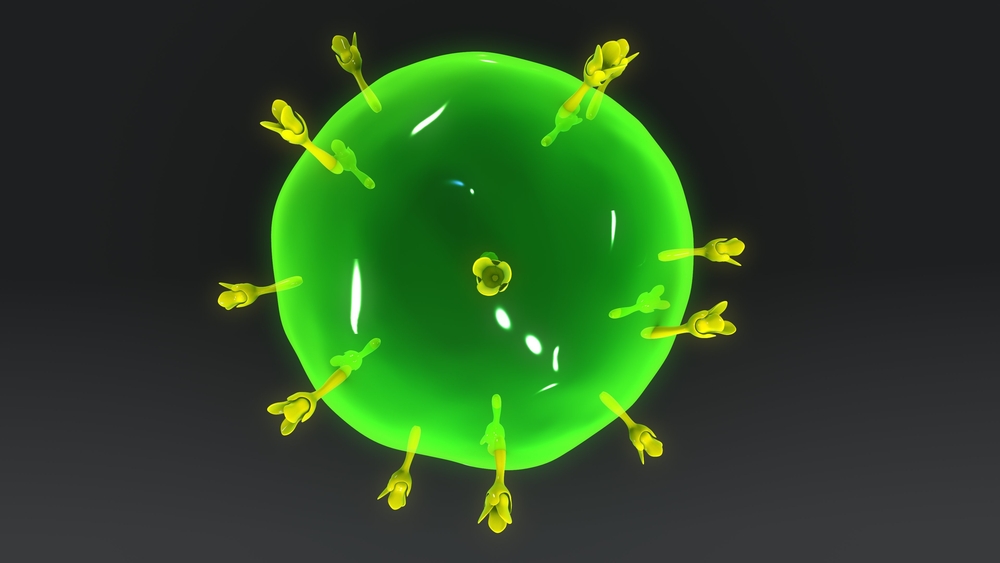EBI2 Receptor Facilitates T-cell Invasion of Brain in MS, Animal Study Shows
Written by |

Scientists have identified a receptor that promotes the influx of damaging immune T-cells into the brain of a mouse model of human multiple sclerosis (MS).
The study, “EBI2 is highly expressed in multiple sclerosis lesions and promotes early CNS migration of encephalitogenic CD4 T cells,” appeared in the journal Cell Reports.
In MS, inflammatory T-cells — a key group of cells in the immune system — traverse the blood-brain barrier in order to penetrate the brain and attack the central nervous system (CNS).
Understanding the mechanisms that allow T-cell penetration is crucial in developing novel therapeutics for MS.
Now, researchers at Germany’s Mainz University Medical Center have discovered that a protein on the surface of T-cells, called EBI2, is central to this penetration. EBI2 works as a receptor for another protein, a ligand known as 7α,25-dihydroxycholesterol. Scientists found that EBI2 expression in T-cells facilitates their entry in the brain. With increasing concentrations of EBI2 and its ligand, more T-cells penetrate the blood-brain barrier, damaging the brain.
In fact, researchers observed that cells expressing higher concentrations of EBI2 accumulated in inflamed brain areas of MS patients.
“This data allowed us to conclude that in humans, the receptor and an elevated ligand concentration promote infiltration by T-cells and thus the development of CNS-disease,” Florian Wanke, who was mainly in charge of the team’s experimental research, said in a press release.
To study the effects of EBI2, researchers used mice with experimental autoimmune encephalomyelitis, an established animal model for the study of human MS. They first observed that ligand production, via a class of protein called enzymes, peaks in the CNS during inflammation.
“The more of these enzymes are active, the greater the number of ligands that are able to channel T-cells across the blood-brain barrier,” explained Florian Kurschus, the study’s lead author. “So we were able to conclude how actually increased ligand is produced in the inflamed CNS tissue.”
EBI2 belongs to a class of receptors, the G-protein-coupled receptors, for which targeted therapeutics already exist.
“Several potential therapeutic approaches for EBI2 are already described, and we plan to explore their efficacy in future experiments in models of MS,” Kurschus said. “In addition to MS, this receptor may also play a role in other autoimmune diseases. This is because EBI2 is produced by particularly dangerous cells known as Th17 cells, which are a sub-group among the T helper cells.”





